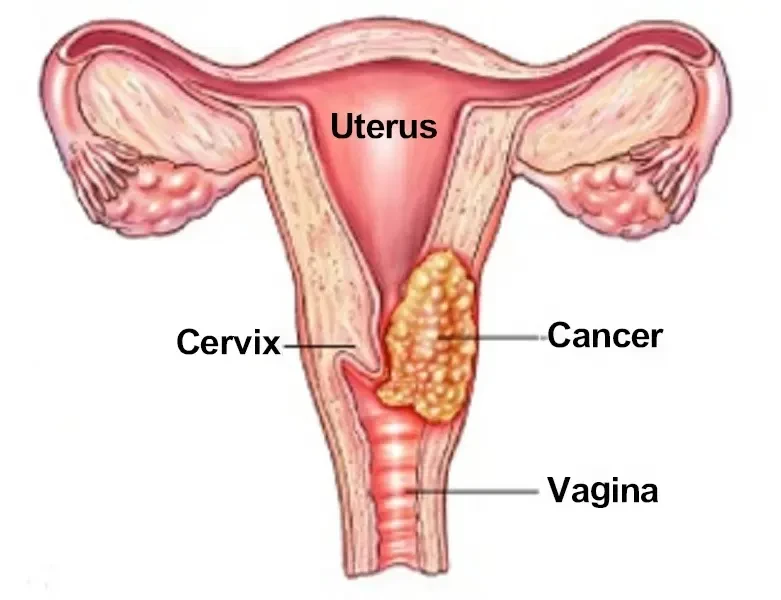
Uterine cancer, also known as endometrial cancer, is a type of cancer that begins in the lining of the uterus (endometrium). It is one of the most common gynecological cancers in women.
Here is an overview of uterine cancer, including its cause, symptoms, prevalence, diagnosis, treatment, and prognosis:
– Prevalence
Uterine cancer is one of the most common gynecological cancers in women. The prevalence of uterine cancer varies by region and is more common in developed countries. The incidence of uterine cancer has been increasing in recent years, in part due to rising rates of obesity.
The exact cause of uterine cancer is not fully understood, but several risk factors have been identified:
Most cases of uterine cancer are associated with an imbalance between estrogen and progesterone, with an excess of estrogen. Estrogen can stimulate the growth of the endometrial lining, increasing the risk of cancer over time.
Obesity is a significant risk factor for uterine cancer, as fat tissue can produce excess estrogen.
Precancerous changes in the endometrial tissue, known as endometrial hyperplasia, can increase the risk of uterine cancer.
Uterine cancer is more common in postmenopausal women, with the majority of cases diagnosed in women over 50.
Long-term use of estrogen-only hormone replacement therapy (HRT) without progestin can increase the risk of uterine cancer in postmenopausal women.
A small percentage of uterine cancer cases are linked to genetic mutations, such as Lynch syndrome.
Uterine cancer may present with the following symptoms:
Diagnosing uterine cancer typically involves several steps:
A healthcare provider will inquire about symptoms, medical history, and risk factors.
A pelvic examination may be performed to assess the uterus and surrounding structures.
This imaging test can help visualize the thickness of the endometrial lining and detect any abnormalities.
A biopsy involves the removal of a small sample of endometrial tissue for laboratory analysis to confirm the presence of cancerous cells.
In some cases, a D&C may be performed to obtain a larger tissue sample for analysis.
CT scans, MRI scans, or PET scans may be used to assess the extent of cancer and whether it has spread to other parts of the body.
Surgery to remove the uterus (hysterectomy) is the primary treatment for uterine cancer. Lymph nodes may also be removed for staging purposes.
Radiation therapy may be used before or after surgery to target and destroy cancer cells.
Chemotherapy involves the use of drugs to kill cancer cells or stop their growth. It may be used in advanced or aggressive cases.
In certain cases, hormone therapy may be recommended to block the effects of estrogen on cancer cells.
– Prognosis
The prognosis for uterine cancer varies depending on the stage at which it is diagnosed and treated. When detected at an early stage (confined to the uterus), the prognosis is generally favorable, with a high chance of cure. However, in advanced stages, the prognosis becomes less favorable.


 Whatsapp Now
Whatsapp Now +918106688026
+918106688026